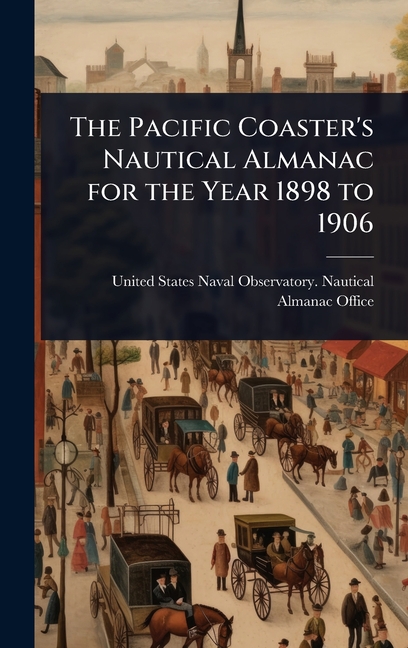Description
The Pacific Coaster's Nautical Almanac for the Year 1898 to 1906, compiled by the United States Naval Observatory. Nautical Almanac Office, is an invaluable resource for anyone interested in maritime history and navigation along the Pacific coast during the late 19th century.
This meticulously detailed almanac offers a wealth of information essential for mariners, including astronomical data, tide tables, and navigational aids tailored specifically for the Pacific coastal regions. A vital tool for ensuring safe and efficient sea travel, its historical significance extends beyond practical use, providing insights into the maritime practices and challenges of the era.
Researchers, historians, and enthusiasts of nautical history will find this almanac an indispensable primary source, offering a unique window into the navigational techniques and coastal conditions of the time. Preserved in its original form, it serves as a testament to the enduring importance of accurate navigational information in maritime endeavors.
This work has been selected by scholars as being culturally important, and is part of the knowledge base of civilization as we know it. This work was reproduced from the original artifact, and remains as true to the original work as possible. Therefore, you will see the original copyright references, library stamps (as most of these works have been housed in our most important libraries around the world), and other notations in the work.
This work is in the public domain in the United States of America, and possibly other nations. Within the United States, you may freely copy and distribute this work, as no entity (individual or corporate) has a copyright on the body of the work.
As a reproduction of a historical artifact, this work may contain missing or blurred pages, poor pictures, errant marks, etc. Scholars believe, and we concur, that this work is important enough to be preserved, reproduced, and made generally available to the public. We appreciate your support of the preservation process, and thank you for being an important part of keeping this knowledge alive and relevant.
Product Details
- May 22, 2025 Pub Date:
- 1023686996 ISBN-10:
- 9781023686990 ISBN-13:
- English Language




